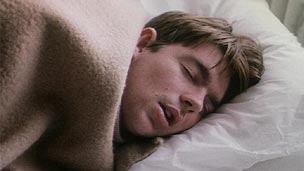The myth of the eight-hour sleep 为何八小时睡
2012-02-28 00:00:00 BBC英伦网
英语学习点: Vocabulary: Sleep 睡眠

Is the eight-hour sleep effective to recharge your batteries?
Good morning. Are you bright-eyed and bushy-tailed after your recommended eight-hour sleep? Or perhaps instead you dropped off for four hours, got up, had a chat, smoked tobacco and visited some neighbours before hitting the sack for another four hours.
A growing number of experts are suggesting that the latter is actually a more natural way for us to recharge our batteries than the eight-hours-in-one-session sleeping pattern that people have come to consider normal.
In researching his book on the subject of shut-eye, Roger Ekirch discovered over 500 historical references to a first and second segmented sleeping pattern. They come from diaries, court records, medical books and literature.
By the late 17th century, street lighting started to appear in cities and more people began to consider spending the night kipping a waste of valuable time. Around the same time, references to a first and second sleep start to disappear.
So, if you are one of those people who find themselves wide awake in the middle of the night and toss and turn unable to return to the land of nod, your insomnia may not be a medical condition after all.
According to sleep psychologist Gregg Jacobs, "For most of evolution we slept a certain way. Waking up during the night is a part of normal human physiology." But the majority of doctors still don't recognise that one eight-hour slumber might be unnatural.
So what's the advice for those who after hours of counting sheep still can't nod off? Lie back and relax. It could actually be good for you.
